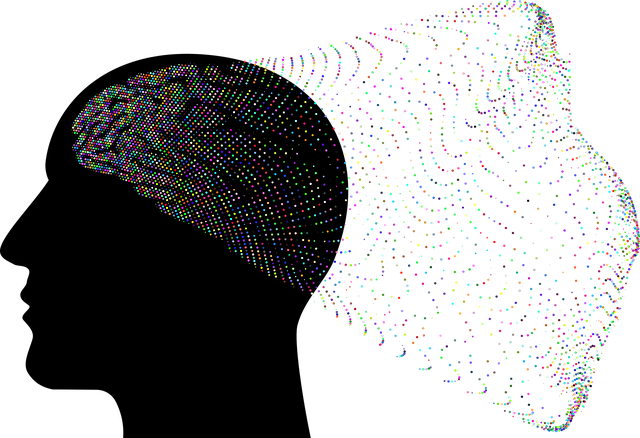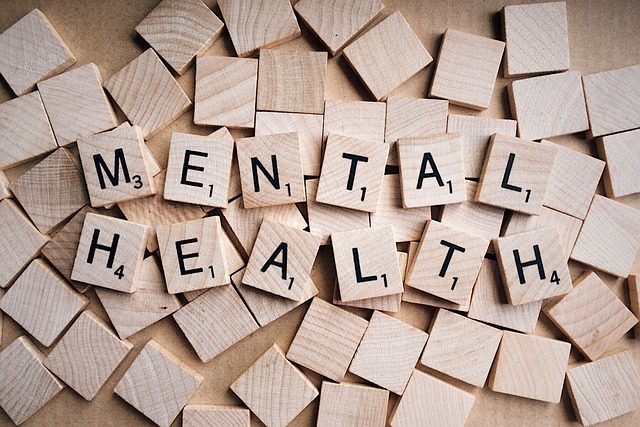Mood disorders significantly impact an individual's emotional health and daily life, requiring early recognition of symptoms like persistent sadness, changes in appetite/sleep, fatigue, and self-harm thoughts. These conditions arise from a complex interplay of genetic factors, brain chemistry imbalances, hormonal changes, environmental stressors, and traumatic events. Chronic stress can lead to burnout for healthcare providers if unaddressed. Lakewood Neuro Disorders Therapy emphasizes the importance of empathy building to support those with mood disorders, encouraging understanding, professional help-seeking, and improved quality of life. They offer effective strategies like therapy sessions focusing on stress management, relaxation practices, and personalized coping mechanisms to enhance mental wellness. As a supportive haven, their expert therapists utilize evidence-based methods (CBT, DBT, IPT) to equip individuals with tools for emotional regulation, self-care, and resilience, ultimately improving overall well-being.
Mood disorders can significantly impact daily life, but effective regulation strategies exist. This article guides you through understanding mood disorders, their symptoms, and causes, offering practical tips for at-home mood regulation. We explore how Lakewood Neuro Disorders Therapy provides specialized approaches to address these conditions. Discover the importance of professional help and learn about innovative therapy methods tailored to your needs.
- Understanding Mood Disorders: Symptoms and Causes
- Strategies for Effective Mood Regulation at Home
- Professional Help: Lakewood Neuro Disorders Therapy Approaches
Understanding Mood Disorders: Symptoms and Causes

Mood disorders, such as depression or bipolar disorder, are mental health conditions that significantly impact an individual’s emotional state and overall functioning. Recognizing the symptoms and understanding their underlying causes is crucial in seeking effective treatment. Common signs may include persistent feelings of sadness, loss of interest in activities once enjoyed, changes in appetite and sleep patterns, fatigue, difficulty concentrating, and, in severe cases, thoughts of self-harm or suicide.
These disorders can arise from a complex interplay of genetic predisposition, brain chemistry imbalances, hormonal influences, environmental stressors, and traumatic life events. For instance, Lakewood Neuro Disorders Therapy highlights that chronic stress can trigger anxiety relief challenges and even lead to burnout prevention strategies for healthcare providers when left unaddressed. Empathy building strategies play a vital role in understanding these disorders, fostering support systems, and encouraging individuals to seek professional help, ultimately improving their quality of life.
Strategies for Effective Mood Regulation at Home

Creating a calm and supportive environment at home is key to effective mood regulation. Incorporating practices that promote relaxation, such as regular exercise, mindfulness meditation, or deep breathing techniques, can significantly enhance mental wellness coaching programs development. Designing your living space with calming aesthetics, like natural lighting, soothing colors, and comfortable furniture, creates a haven where you can retreat to manage stress. Additionally, maintaining an organized and clutter-free environment through consistent decluttering practices has been linked to improved self-esteem and emotional well-being.
Lakewood Neuro Disorders Therapy offers valuable tools for navigating mood fluctuations. Through therapy sessions, individuals learn to identify triggers, develop coping strategies tailored to their needs, and cultivate healthy habits that support stable moods. Stress management techniques, such as time management, setting boundaries, and prioritizing self-care, are integral components of these therapeutic approaches, fostering a sense of control and empowerment in one’s emotional life.
Professional Help: Lakewood Neuro Disorders Therapy Approaches

For individuals struggling with mood disorders, seeking professional help is a pivotal step towards recovery. Lakewood Neuro Disorders Therapy offers a range of evidence-based approaches tailored to address specific needs. Therapists employ techniques such as cognitive-behavioral therapy (CBT), dialectical behavior therapy (DBT), and interpersonal therapy (IPT) to help individuals manage their symptoms effectively. These therapies provide valuable tools for depression prevention, crisis intervention guidance, and fostering healthier coping mechanisms.
The compassionate professionals at Lakewood Neuro Disorders Therapy create a safe, supportive environment, enabling clients to explore underlying issues, develop self-care practices, and enhance their overall well-being. Through personalized treatment plans, individuals gain insights into their mood patterns, learn strategies to regulate emotions, and build resilience to navigate life’s challenges with greater ease.
In understanding mood disorders, their symptoms, and causes, it’s clear that effective regulation requires a multifaceted approach. While home strategies can significantly help, professional guidance is often necessary for deeper healing. Lakewood Neuro Disorders Therapy offers specialized approaches to address these complex conditions, providing individuals with the tools to navigate and transform their emotional landscapes. By combining therapeutic methods tailored to each person’s unique needs, this comprehensive care ensures better mood regulation and improved overall well-being.












